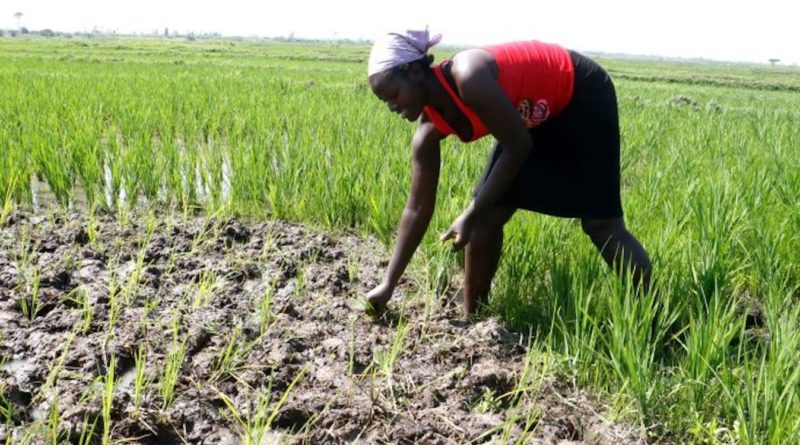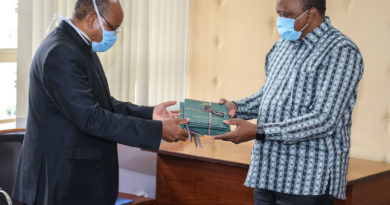Enhancing Food Security in the wake of Floods and COVID 19 Pandemic
County Department of Agriculture has put in place strategies to raise productivity in food production that would not only ensure food security, but also potentially alleviate poverty among households amid the floods and corona-virus pandemic.
As a result of the impact of floods, farming has been concentrated on the hilly areas such as Maseno, Nyahera and parts of Muhoroni where 830 bags each 2kgs of maize seeds, 1,500 bags of top dressing fertilizer and fall army worm pesticides have been distributed to farmers to boost production.
222 dairy goats were recently distributed to farmers across the 7 sub counties in Kisumu to restore livelihoods and combat critical levels of food insecurity and malnutrition in the wake of floods and Covid -19 pandemic.
In promoting horticulture, South East Nyakach has received 6,400 mango seedlings, 6,600 avocado seedlings and a variety of indigenous vegetables.
Further, 1,500 coffee seedlings of Batiang and Robusta varieties have also been distributed in South East Nyakach, another batch of 2,600 coffee seedlings of Arabica variety has been distributed in Kajulu, Seme and Kisum west courtesy of Agriculture Food Authority ( AFA).

So far 12 tons of conventional cotton, 380kgs of non- Bt hybrid and 140 kgs of Bt hybrid seeds have been distributed to the cooperatives within the county awaiting planting come January in the 1,000 acres slotted for cotton production.
Currently, about 560 bags of rice seeds each weighing 3kgs and fertilizers have been purchased and kept in stores awaiting distribution to the farmers come the month of June to revive rice farming in the flood affected areas after it subsides.
The aim is to build resilience of farmers against the effects of climate change and increase productivity in the targeted small holder farming envisaging transitioning of the County from a net importer to food sufficiency for local consumption and the export market.
This is expected to be achieved by expanding the knowledge and skills of farmers to transform agriculture from a low income, low efficiency and low technology sector to a vibrant modern sector supporting value addition through scientific and technological innovation, improved extension services and credit provision to transform agriculture from the old man’s job to a career of choice.




